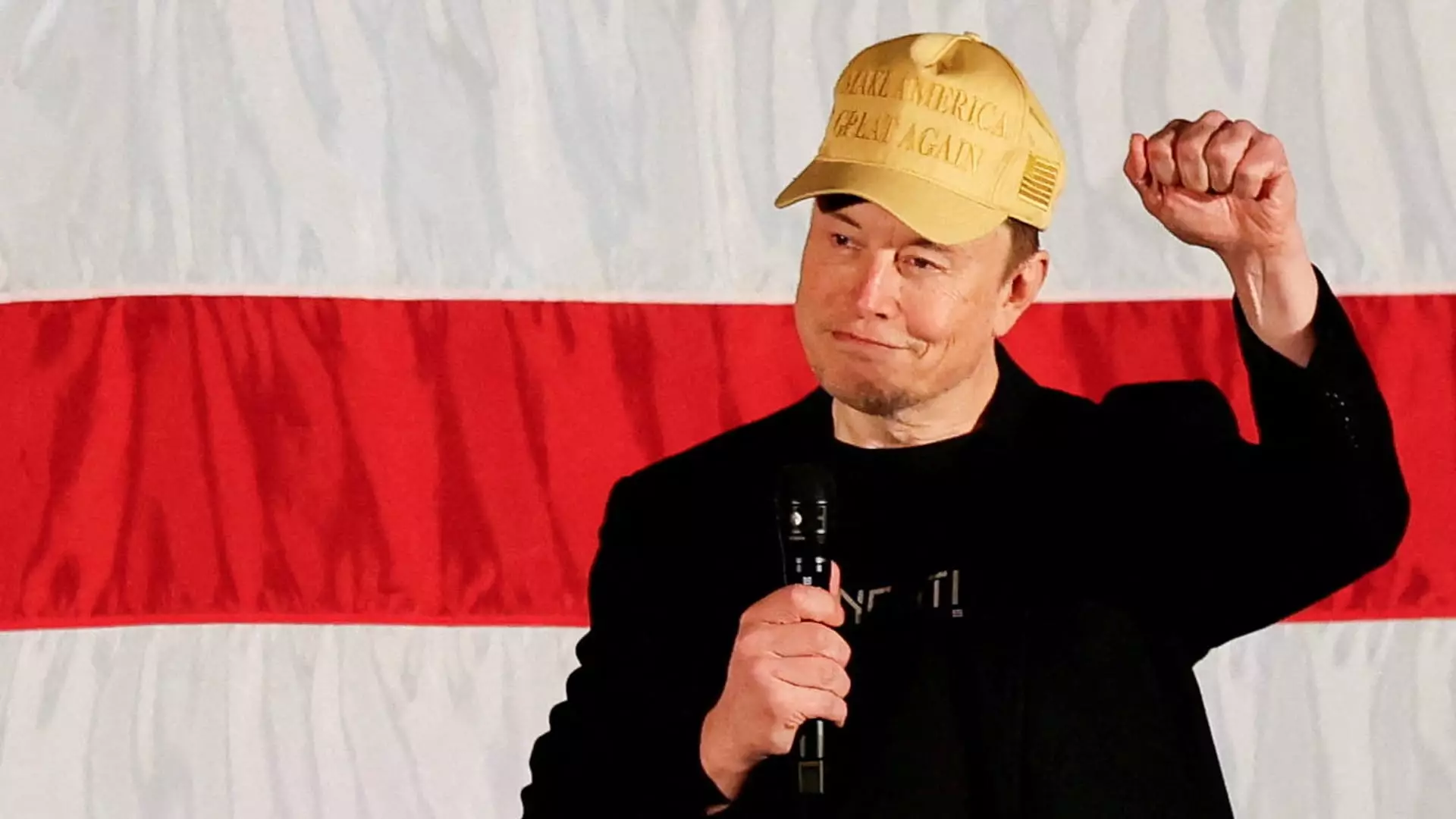In a highly controversial move, billionaire entrepreneur Elon Musk recently announced a startling initiative: he will randomly distribute $1 million each day to registered voters who support his pro-Trump political action committee. This surprising announcement came during an event in Harrisburg, Pennsylvania, where Musk expressed his desire to galvanize voter turnout in key swing states ahead of the upcoming election. According to Musk, this initiative is not just about increasing voter engagement but also about injecting a sense of excitement into the political process.
By offering substantial monetary incentives for voter participation, Musk aims to tap into the excitement surrounding his celebrity status and extensive social media following. However, such a strategy raises serious questions about the ethical implications of incentivizing political participation with cash prizes. Is this an innovative way to encourage democratic engagement, or does it undermine the very principles of democratic participation?
Rick Hasen, a renowned election law expert and UCLA law professor, voiced significant concerns regarding the legality of Musk’s initiative. He pointed out that federal law prohibits individuals from paying for voter registration or votes. Hasen’s analysis underscores potential violations in Musk’s approach, suggesting that this could be a serious infringement on the democratic process—an arena where financial incentives should not play a role.
“Certain things in this country can be sold, and certain things we have decided should not be for sale,” Hasen remarked, emphasizing the need for integrity in the political system. The notion of selling votes or swaying electoral outcomes based on financial gain compromises the ethical foundation of democracy. The question looms: what ramifications might arise if the wealthiest individuals could effectively dictate electoral outcomes through financial influence?
Pennsylvania Democratic Governor Josh Shapiro further amplified concerns, describing Musk’s scheme as “deeply concerning” and worthy of investigation by law enforcement. The political tension surrounding Musk’s actions cannot be understated; his overt support for Trump and pro-Trump agendas has already stirred controversy, inviting scrutiny from various quarters, particularly among those opposing the former president.
Moreover, Musk’s past comments at pro-Trump events—including unfounded voter fraud claims and derogatory remarks about prominent political figures—add layers of complexity to his current initiative. Such rhetoric raises questions regarding Musk’s motives and the sincerity of his purported aim to foster voter engagement.
Musk’s Relationship with Government and Regulation
Despite Musk’s declared disdain for government intervention, his businesses have benefitted substantially from government contracts and programs. This contradictory stance has led some to view Musk as someone who wishes to dismantle regulations only when they serve his interests. During his Harrisburg speech, he criticized various government agencies for “holding back” his companies, particularly SpaceX, indicating a desire for unfettered industrial expansion unencumbered by regulatory frameworks designed to ensure public safety and environmental protection.
Significantly, Musk’s relationships with regulatory bodies have been tumultuous. SpaceX has faced legal challenges, including a fine for environmental violations, which Musk downplayed as cumbersome bureaucracy. This consistent clash with regulatory entities reveals not only Musk’s libertarian inclinations but also a fundamental ambivalence toward obligations to society that such regulations encompass.
The Broader Implications of Musk’s Actions
Musk’s pet strategy highlights the dangerous intersection of wealth, influence, and governance. As one of the world’s richest individuals, Musk possesses a unique platform that allows him to manipulate the political conversation to his advantage. By leveraging his notoriety to engage voters in a manner that could potentially flout legal boundaries, Musk challenges the status quo, prompting a reexamination of political ethics in the contemporary landscape.
His call for a government efficiency commission, as endorsed by Trump, further crystallizes the mixed messages conveyed during Musk’s appearances. While he advocates for reduced regulatory oversight, his own companies depend heavily on governmental support—an inherent contradiction that underscores the broader problem of wealth inequality in political influence.
Musk may articulate a vision of a liberated market without government interference, but this vision could lead to a political landscape dominated by the interests of the ultra-wealthy. As his initiatives evolve, society must grapple with the critical implications of a political system increasingly influenced by billion-dollar giveaways and the ethical boundaries of democratic engagement.
In essence, Musk’s proposal not only reflects his colorful character but also invites a significant discussion about the role of money in politics—one that must be taken seriously by both policymakers and the broader electorate as they navigate the evolving political terrain leading up to the election.


Leave a Reply